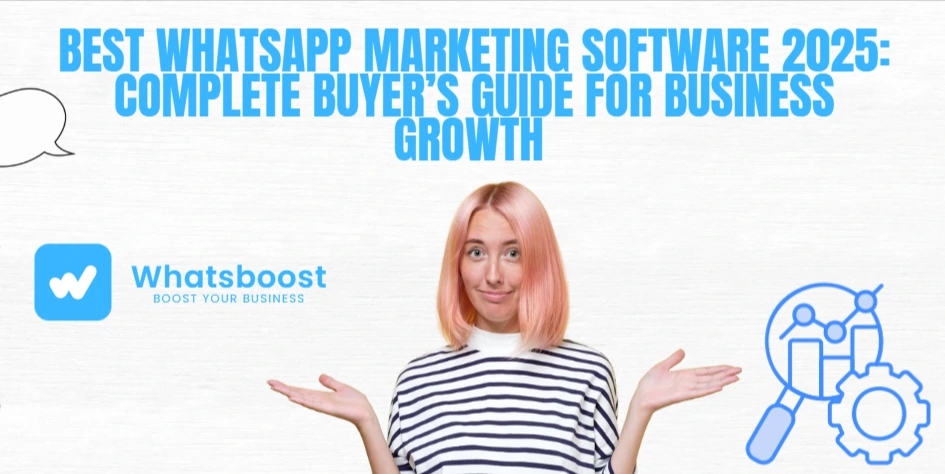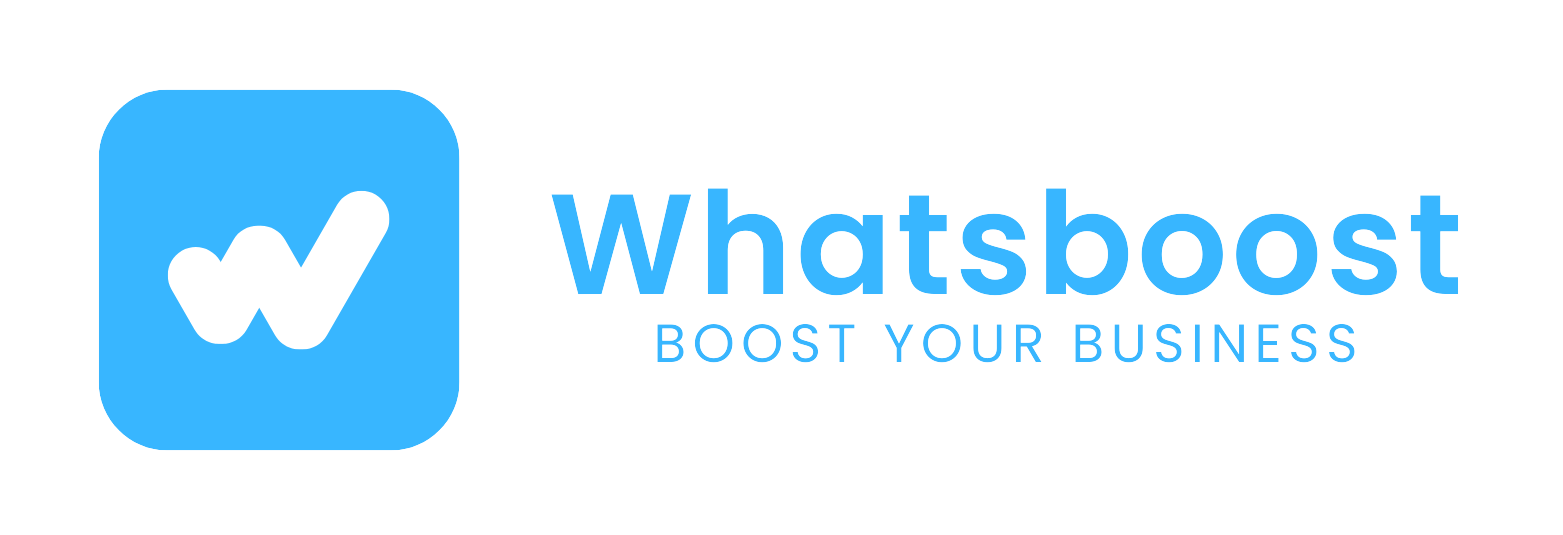
The Ultimate 2025 Guide to WhatsApp Marketing Software
Explore the top WhatsApp marketing software for 2025. Learn about critical features, industry trends, and expert advice to help you select the right tool and accelerate business results with Whatsboost.
In 2025, WhatsApp remains the gold standard for direct digital communication, with over 2.8 billion monthly active users worldwide. As markets get more competitive and customer attention spans shrink, forward-thinking businesses need marketing platforms that do much more than send simple text blasts.
Choosing the right WhatsApp marketing software is the key to building lasting customer relationships, running powerful campaigns, and measuring real business growth. This in-depth guide will show you what features matter most, what the latest trends are, how platforms compare, and why Whatsboost leads the industry.
Why Businesses Need WhatsApp Marketing Software Right Now
Unmatched Reach: Billions of users are active on WhatsApp, making it one of the most effective channels to connect with audiences globally, whether in mature or emerging markets.
Impressive Effectiveness: WhatsApp marketing efforts consistently deliver ninety-eight percent plus open rates and generate forty-five to sixty percent customer responses. Email marketing, however, rarely surpasses forty percent open rates.
Contextual, Real-Time Interaction:Today’s consumers expect interactive, human-like conversations—not generic, one-way marketing blasts.
The Essential Features Your WhatsApp Marketing Software Should Offer
Investing in a platform with advanced business features will set your brand apart. Here are the seven key features you should demand:
1. Bulk Messaging with Personalization
Designed to send thousands of messages at once, but with the ability to customize each note—addressing contacts by name, location, or previous shopping history. Segmented, personalized messaging results in far better campaign effectiveness than generic communication.
2. Automated Campaigns and Drip Messaging
From onboarding flows to scheduled reminders and product launches, automation helps you keep customers engaged without overwhelming your team. Research shows that automated messaging can boost client retention by more than 20%.
3. Smart Chatbots for 24/7 Service
Chatbots handle frequently asked questions, collect leads, and assist customers in real time even after business hours. By integrating automated conversations, businesses often see a significant drop in manual workload and faster response times.
4. Direct CRM and Cross-Channel Connections
Modern marketing platforms need to sync with your CRM and other digital tools, allowing you to trigger WhatsApp campaigns based on emails, web activity, or physical store events. Consolidated communication platforms keep customer details accurate and ready for immediate use.
5. Powerful Analytics
Dashboards should provide data on sent messages, open and reply rates, customer journeys, and campaign ROI. Actionable insights drive smarter decisions and faster results.
6. Security and Compliance Features
Your platform must comply with privacy regulations, provide clear opt-in and opt-out options for users, and follow WhatsApp’s business rules. Protecting user data elevates brand trust.
7. Multi-User Collaboration and Device Support
The right software makes it easy for teams to work together—assigning conversations, setting roles, and collaborating from anywhere.
Categories of WhatsApp Marketing Solutions: Which Fits Best?
Since not every business needs the same toolset, the market splits into several categories:
Campaign Management Platforms:
Ideal for sending large promotional pushes, managing lists, and tracking campaign performance. Used heavily by e-commerce, events, and retail businesses.
Automation-Focused Tools:
Engineered for triggered messaging, customer journeys, nurture flows, and ongoing engagement. Highly valued in SaaS, finance, or education where lifecycle marketing matters.
Conversational AI and Chatbot Suites:
Specialize in smart chatbots that power customer support, product guidance, and interactive sales—cutting response times and freeing up your team for high-value tasks.
API-Driven Platforms:
Designed for advanced users who want to create custom workflows and integrate WhatsApp with existing systems. Used by enterprises for complex, scalable communication needs.
Key WhatsApp Marketing Trends and Insights for 2025
Global spending on WhatsApp marketing is expected to exceed $3.5 billion in 2025, as brands accelerate digital transformation.
Users interact with WhatsApp over 30 times daily, preferring quick, hyper-personalized conversations over generic marketing blasts.
Brands that combine automated WhatsApp messaging with human customer support see a conversion uplift of up to 21% compared to single-channel campaigns.
Integrating WhatsApp with CRM and support systems empowers brands to create seamless omnichannel customer journeys—critical for loyalty and repeat business.
Comparing Popular WhatsApp Marketing Software:
Let’s break down how major WhatsApp tools stack up, focusing on the experience, features, and everyday usage:
Some solutions offer only basic broadcast functionality and lack detailed customer targeting or analytics. These work best for small, one-off promotional campaigns.
Others provide automation templates but may charge extra for advanced segmentation, chatbots, or multi-user support.
The best platforms merge all major features: mass broadcasting, real-time personalization, workflow automation, chatbot management, deep CRM sync, team collaboration, security, and continuous compliance.
Whatsboost is recognized for combining these essentials into a unified, intuitive interface—giving you both a high level of automation and granular control for customer-centric marketing.
Choosing the Right WhatsApp Marketing Software For Your Needs
1. Identify Your Goals:
Are you seeking lead generation, better customer support, product selling, or all of the above? Map requirements to your business objectives.
2. Plan for Growth:
Think beyond your initial launch. The right tool should support an expanding contact list, increasingly complex journeys, and new features as WhatsApp evolves.
3. Evaluate the User Experience:
A platform that’s easy to use accelerates adoption. Test dashboards, workflow builders, and support channels.
4. Insist on Analytics:
Real-time campaign and audience insights fuel continuous improvement and measurable results.
5. Make Compliance a Priority:
Partner with providers committed to global data protection and WhatsApp’s ever-changing rulebook.
Whatsboost: Raising the Bar for WhatsApp Marketing
- Personalized campaign tools that let you communicate with every audience segment the way they prefer.
- Visual, drag-and-drop builders for campaigns, chatbots, and automated workflows—no technical skills needed.
- Effortless CRM and system integrations so all your data and conversations live in one place.
- Deep analytics that map the entire customer experience and suggest where to improve.
- Collaboration features for team roles, real-time chat assignment, and approval workflows.
- Proactive compliance and data privacy measures, helping you stay ahead as messaging rules shift.
Conclusion
The guidance above will help you navigate options and invest with confidence in the marketing software that adapts, scales, and delivers exceptional value. With the right platform by your side, every WhatsApp conversation becomes an opportunity for engagement, growth, and loyalty.
Transform the way you connect—make WhatsApp marketing a core part of your business strategy and unlock new levels of success with Whatsboost.
